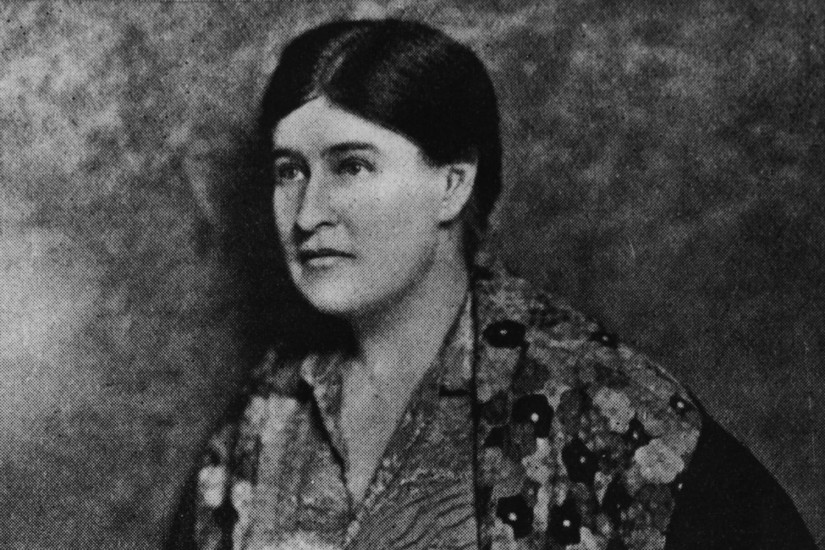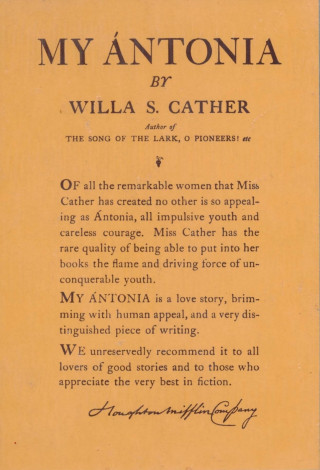Willa Cather was not a flashy stylist, and though she was ambitious in her work, she did not attach it to a publicity-worthy life like some of her contemporaries, such as Ernest Hemingway and F. Scott Fitzgerald. Cather’s first book of poetry came out in 1903, when she was twenty-nine; her first book of stories followed a couple years later, when she was thirty-one. Her last novel appeared in 1940, and a volume of three more stories was published in 1948, shortly after she died. Forty-five years is a long career for a novelist, but she possessed an intensity of observation and a curiosity about human psychology, especially as it relates to nature, that never waned. My Ántonia is one of her best-loved books, and it displays all the characteristics that make Cather both elusive and fascinating even as it depicts a world that vanished almost as soon as the novel was published.
Willa Cather was born in an interesting spot in the mountains of Virginia, near Winchester, on the banks of a tributary of the Potomac, Back Creek. The family properties (one owned by her grandfather, another given to her father by her grandfather) were about ninety miles from Washington, D.C., and fifty miles from prosperous plantation regions like Loudon County. But—perhaps especially after the Civil War—it was difficult to make a living in the mountains and dangerous because of tuberculosis outbreaks, so Cather’s father and mother, Charles and Mary Virginia, took Willa and the other children (eventually there were seven in all) to rural Nebraska. After their first winter in the country, they settled in Red Cloud, a new town six miles north of the Kansas border and about halfway between the northwestern corner of Missouri and the northeastern corner of Colorado. Willa was about to turn ten. In Nebraska, the Cathers, immigrants from Virginia, immediately encountered a huge population of other immigrants from more distant and perhaps more romantic—to Willa—places: Norway, Sweden, France, Bohemia, Mexico. A sense of the world that compelled Cather for the rest of her life began to develop, a sense of the world that is deeply American, simultaneously local and exploratory, rustic and cosmopolitan.
Cather’s early prairie novels were published over the course of six years that were extremely eventful in American and world history—O Pioneers! in 1913, The Song of the Lark in 1915, and My Ántoniain 1918. She did not address the issues of World War I until her next novel, One of Ours, published in 1922. (It won the Pulitzer Prize.) But in all four works, the main characters—Alexandra, Thea, Ántonia, and Claude—wrestle with more or less the same question, maybe the essential question of the twentieth century: to stay or to go, and if so, how and why?

